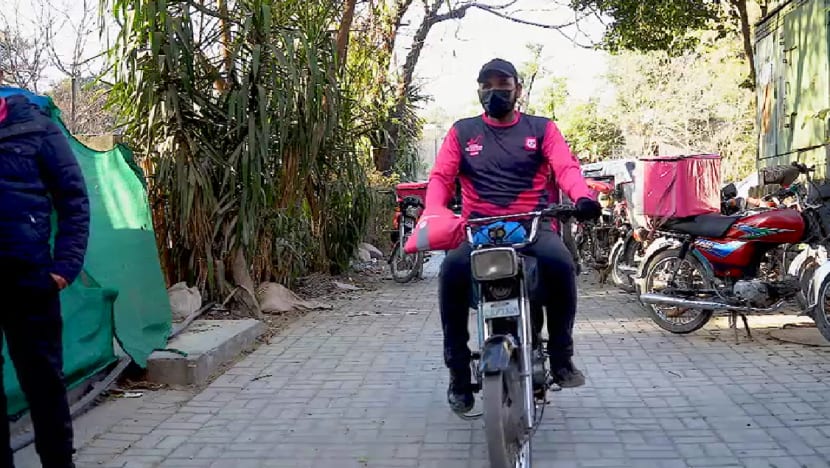Elon Musk's Starlink satellite internet service awaits approval to operate in Pakistan
ISLAMABAD: Food delivery worker Muhammad Asghar has been hit hard by Pakistan’s repeated internet disruptions.
The 50-year-old relies on his phone to receive delivery orders from restaurants.
But when there is no internet, orders are missed, he told CNA.
“Without the internet, we cannot work,” said the sole breadwinner in a family of four.
“The restaurant refuses to take the order back if we can't deliver on time. In such cases, our company sometimes unfairly imposes the loss incurred on us.”
He is not alone in his woes. Pakistan has one of the slowest internet speeds globally.
IMPROVED RELIABILITY, EVEN IN REMOTE AREAS
The country’s mobile and broadband internet speeds are among the world's lowest 10 per cent, according to web testing and diagnostics company Ookla.
Tech experts blame aging infrastructure and power cuts for the problem.
But tech billionaire Elon Musk's Starlink satellite internet service is hoping to change this.
The satellite network developed by American aerospace firm SpaceX is expected to launch in Pakistan, but is still awaiting government greenlight to operate in the South Asian market.
Starlink has promised faster speeds and improved reliability, even in remote locations.
The network could significantly improve internet connectivity, said observers.
“It is going to be in sync with Pakistan’s Digital Silk Road and also getting e-commerce up and going,” said Dr Maria Sultan, director general of the South Asian Strategic Stability Institute, referring to a digital infrastructure that will connect the country to global markets.

HIGH COSTS
But observers have raised the issue of cost, as Starlink can be expensive going by global rates.
A one-time hardware set-up fee of nearly US$400 and a monthly subscription rate of US$126 is steep in a country where the average monthly income is under US$300.
Starlink is not the only satellite internet service provider eyeing the Pakistani market. One other company awaiting approval is China’s Shanghai Spacecom Satellite Technology.
Pakistan said the permission for these satellite internet companies to operate is likely to come within six months.
This potentially gives Pakistanis more options, said Usama Khilji, director at Pakistan-based research and advocacy organisation Bolo Bhi.
“The more companies you have offering services the better it is for the country, because you have more choice, you have more variety,” he added.
“And when they are competing, they will try to decrease their prices to capture more of the market chunk.”
NATIONAL SECURITY CONCERNS
However, Pakistan's internet problems are not just due to slow network speeds.
Government blockades are a contributing factor, according to Top10VPN.com. The independent VPN review website identified 18 instances of deliberate internet shutdowns last year, citing elections, “information control”, and protests.
These disruptions last year cost the Pakistani economy an estimated US$1.62 billion.
Experts told CNA that satellite internet services will unlikely be able to bypass blockades if they want to operate in Pakistan.
Also complicating matters is Musk’s recent remarks linking Pakistanis to Asian grooming gangs in Britain and perpetuating harmful stereotypes.
Pakistani lawmakers have demanded an apology before the government approves Musk’s request to launch internet services in the country.
免責聲明:投資有風險,本文並非投資建議,以上內容不應被視為任何金融產品的購買或出售要約、建議或邀請,作者或其他用戶的任何相關討論、評論或帖子也不應被視為此類內容。本文僅供一般參考,不考慮您的個人投資目標、財務狀況或需求。TTM對信息的準確性和完整性不承擔任何責任或保證,投資者應自行研究並在投資前尋求專業建議。
熱議股票
- 1
- 2
- 3
- 4
- 5
- 6
- 7
- 8
- 9
- 10